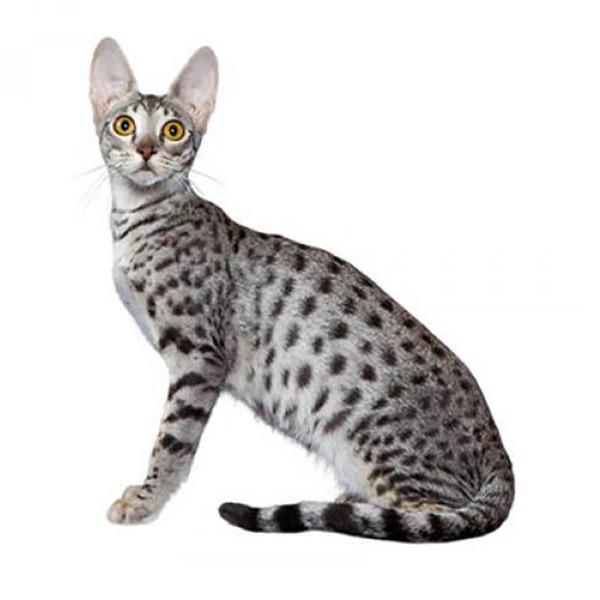What Causes Cat Odor?
Natural Odor of Cats
Hygiene and Grooming
Health Issues
Environmental Factors
How to Reduce Odor in Savannah Cats
Regular Grooming
Managing Diet
Cleaning the Environment
Products to Control Cat Odor
FAQs About Savannah Cats and Odor
Final Thoughts: Keeping Your Savannah Cat Smelling Fresh

Let’s clear up the confusion first: Savannah cats are not inherently smelly pets. They’re naturally clean animals, just like other domestic cats, and they spend a lot of time grooming themselves. However, if your Savannah cat has developed an unpleasant odor, it’s not something to ignore—it’s usually a sign of something specific, such as environmental factors, hygiene issues, or even a health problem.
If you notice a smell, ask yourself a few key questions:
Is their litter box clean?
Has their diet changed?
Could they have a health issue?
These answers often help pinpoint and solve the issue quickly.
All cats have a very mild natural scent, typically from the oils on their skin and fur. You probably won’t notice this unless you’re very close to them. Savannah cats, with their short, sleek coats, are no different. However, if they get wet or roll in something dirty, that natural scent can intensify temporarily.
Cats are self-grooming creatures, but sometimes they need a little help. Savannah cats are playful and adventurous, which means they’re more likely to get into messes. Long periods between baths, dirty bedding, or debris stuck in their fur can lead to smells. Also, their litter box hygiene is critical—no matter how clean your cat is, a neglected litter box will always be a problem.
If your Savannah cat has a persistent smell, it’s worth considering health issues:
Dental Problems: Bad breath from gum disease, plaque buildup, or an infected tooth is a common cause of odor.
Skin Infections: Fungal or bacterial infections can give off a musty or sour smell.
Urinary Issues: If their urine smells unusually strong or foul, it could be due to dehydration or a urinary tract infection.
Ear Problems: Infections or ear mites can cause an unpleasant smell around the head area.
A cat’s environment plays a massive role in how they smell. If their bedding, litter box, or favorite lounging spots are dirty, those odors can transfer to their fur. Also, a poorly ventilated home traps smells, making even minor odors seem worse.
Not at all! Savannah cats are known for being exceptionally clean. Their short coats are easier to maintain than long-haired breeds, and their grooming habits are just as meticulous. That said, their active and curious nature can make them prone to getting dirty more often, which might lead to temporary smells.
One area where Savannah cats might differ is spraying. Unneutered male cats, including Savannahs, are more likely to spray to mark their territory, and this can be particularly pungent. Neutering usually resolves this issue.
Savannah cats groom themselves regularly, but brushing them once a week can help remove dirt and loose fur. Occasionally bathing them with cat-safe shampoo is also a good idea, especially if they’ve gotten into something messy.
Tips for bathing:
Use lukewarm water.
Make sure the shampoo is specially formulated for cats—human products can irritate their skin.
Dry them thoroughly to avoid any musty smells from damp fur.
What your cat eats directly affects their overall health and odor. Poor-quality food with fillers can lead to bad breath and smelly waste. Stick to high-quality, protein-rich diets and ensure they’re drinking enough water.
Litter Box: Scoop waste daily and change the litter every week. Using clumping litter or odor-neutralizing products can make a big difference.
Bedding and Furniture: Wash their bedding regularly and vacuum any areas they frequent. This prevents odors from settling into fabrics.
Air Quality: Keep the space ventilated and consider using air purifiers to neutralize any lingering smells.
Here are some essential tools and products that can help:
Odor-Absorbing Litter: Brands like Dr. Elsey’s or Tidy Cats offer excellent odor control.
Deodorizing Sprays: Pet-safe sprays can freshen up bedding and furniture without being harsh.
Dental Products: Dental chews, water additives, or cat-safe toothpaste can help combat bad breath.
Pet Wipes: For in-between bath cleanups, wipes are a convenient solution.
Q: Why does my Savannah cat smell bad?
A: The most common reasons include a dirty litter box, unclean bedding, diet issues, or an underlying health problem like dental disease or skin infections.
Q: How often should I bathe my Savannah cat?
A: Cats generally don’t need frequent baths unless they get into something messy. For Savannah cats, a bath every few months or as needed should suffice.
Q: Does Savannah cat spray smell worse than other cats?
A: Like all cats, unneutered males may spray, and the smell can be quite strong. Neutering usually resolves this issue.
Q: What’s the best way to manage litter box smells?
A: Scoop waste daily, clean the box weekly, and use high-quality clumping or odor-absorbing litter. You can also use litter deodorizers for extra freshness.
Savannah cats are clean and elegant pets, and with a little effort, you can ensure they remain odor-free. Focus on their grooming, provide a healthy diet, and keep their environment spotless. If you ever notice persistent or unusual smells, don’t hesitate to consult your vet—it’s always better to address issues early.
With these tips, your Savannah cat can remain the playful, lovable, and fresh-smelling companion you adore!
animal tags: Savannah-Cats
We created this article in conjunction with AI technology, then made sure it was fact-checked and edited by a Animals Top editor.